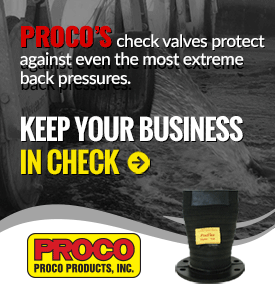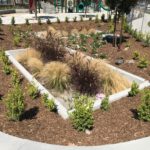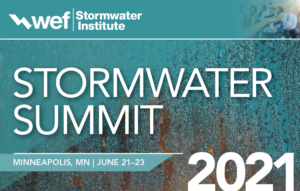New organization seeks to share messages nationally
All municipal separate storm sewer system (MS4) permits issued by the U.S. Environmental Protection Agency (EPA) or a delegated state authority require public education as a strategy to improve stormwater and receiving water quality by changing public behavior.
Public education is the primary workhorse of nonstructural best management practices (BMPs). The public can reduce or eliminate behaviors that impair stormwater quality — such as littering, using pesticides and fertilizers, dumping, and leaving pet waste. Public education is a powerful BMP; this is why it is a required element of all MS4 programs.
But to date, the stormwater sector has neglected some efficiencies that can gain both performance and cost. Taking advantage of this missed opportunity will require a shift in how permittees implement their public education program elements.
Consider a national scope
Commercial advertising is the most basic example of a public education campaign designed to change public behavior. National advertising campaigns are viewed as the most effective: Advertising time during the Super Bowl telecast is among the most expensive since it reaches a wide audience. However, production costs for the message spread across the number of views by the public, results in a high return on investment.
Surprisingly, a national campaign approach has not been used for stormwater public education. Area-wide programs and even state-wide programs have been developed, but the cost and performance advantages of a national stormwater quality campaign remain untapped.
Part of the reason for this lapse is the structure of the National Pollutant Discharge Elimination System (NPDES) program. Coverage is granted to individual permittees, and groups of permittees, but always only at the state level; national collaboration is not facilitated. Further, there is no established baseline for what constitutes an effective public education program. Questions remain about how to measure effectiveness and what level of resources should be committed to implementation.
Only extracting part of the potential benefit of public education seems antithetical to its station as a primary workhorse among nonstructural BMPs.
NMSA actions
The National Municipal Stormwater Alliance (NMSA) seeks to fill this void. NMSA is a new national stormwater organization focused on clean water for the nation through compliance with the MS4 stormwater program. NMSA was formed in close partnership with the Water Environment Federation and has been founded through the participation of state-level organizations of MS4 permittees. The organization works exclusively on issues and concerns directly related to the MS4 permitting program. Currently there are eight organizations that comprise the charter member group. A fundamental tenet of NMSA is to improve the quality of the nation’s waters through nonstructural and source control approaches.
NMSA will be working with its membership, other nongovernmental organizations (NGOs) and EPA to create a national public education campaign for stormwater. NMSA’s plans include the following:
- Develop a national message, based on existing and new material. This message will be used consistently across the U.S., and will contain basic elements that will not be altered by the permittee. The message also will have elements that enable customization for local markets.
- Recommend media outlets to distribute the message. The message content will be suitable for all types of media, and recommendations will be provided relative to the suitability of various media outlets for target audience and cost.
- Provide a tool(s) to determine the effectiveness of the message. Effectiveness will be assessed at the local, regional, and national level.
- Provide a coordinated program to pay for implementation by creating a framework for pooled-fund implementation. Many permittees do not have the staff to implement a public education campaign. MS4 programs can gain efficiencies by providing funding to a national program.
- Provide a feedback mechanism. Surface water pollutants that can be reduced through public education are the same nationally. The national advertising campaign can be modified as changes in public behavior are measured, focusing on the most acute problems in turn.
Expected results
The cost reduction and performance improvement potential of a national stormwater education campaign is substantial. NMSA will provide the leadership to make this strategy a reality. NMSA will coordinate with EPA to ensure that the message and program meet the requirements of the Clean Water Act, as well as a credit system to ensure compliance with state NPDES permits.
Learn more about NMSA and the national public education program at www.nationalstormwateralliance.org
Scott Taylor is vice president at Michael Baker International, based in Pittsburgh. He also serves as vice chairman for NMSA.
About NMSA
 NMSA seeks to represent MS4s at a national level and to help lead changes in regulation both proactively and reactively. To date, MS4 programs largely have been reactive; a goal of NMSA will be to collaborate with EPA on ways to improve the implementation of the MS4 program.
NMSA seeks to represent MS4s at a national level and to help lead changes in regulation both proactively and reactively. To date, MS4 programs largely have been reactive; a goal of NMSA will be to collaborate with EPA on ways to improve the implementation of the MS4 program.
NMSA also will focus on connecting and uniting MS4 programs nationwide. As a central point to disseminate information from high-performing programs, NMSA will be able to promote fundamental goals, including promoting stormwater as a resource, improving the public image of stormwater, and creating opportunities for multi-benefit projects.
NMSA will serves as the voice of the MS4 communities on a national scale. The group will provide a forum to discuss and act on items of national significance to MS4 permit holders, assemble data about stormwater programs, publicize this data, and help shape policies and rules to ensure they are protective of the environment, but also provide for stewardship of public funds.
















I would love to see a national message developed.
Eight years ago, Hamilton County Soil & Water Conservation District organized a SW Ohio/N. Kentucky Collaborative to accomplish mass media education regionally. Our website is http://www.savelocalwaters.org Each members contributes .02/capita annually. The results have been phenomenal! IF you’d like more information, contact John Nelson, PR Specialist at 513-772-7645 or john.nelson@hamilton-co.org
This is great. I believe that this type of approach is very necessary in order to raise public awareness and thus make a difference.